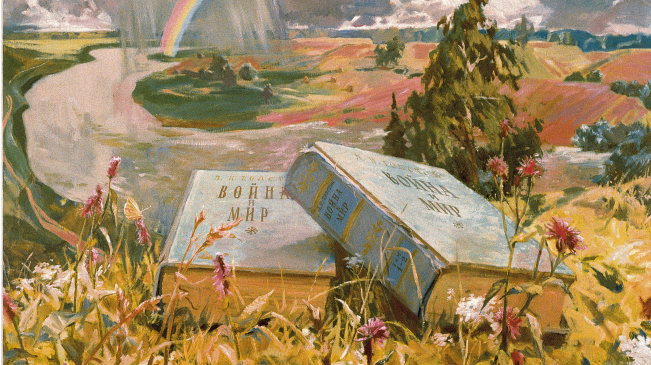Russian Minor

Upon completion of the Russian minor, students should be able to:
Communication:
- Understand the main points of clear standard speech on familiar matters.
- Read articles, reports, and short stories.
- Converse on family, hobbies, work, travel, and current events.
- Write simple connected texts on topics that are familiar or of personal interest.
- Access and use the new media in Russian.
Culture:
- Demonstrate basic familiarity with the norms of contemporary Russian life (i.e., family interactions; popular entertainment; media, including the internet; etc.).
Academic and Professional Applications:
- Apply Russian as a research tool to a particular academic discipline (i.e., literature, linguistics, history, political science, theology, etc.).
- Use Russian in the professional arena (i.e., in working for the U.S. government, an NGO, a private company or firm conducting business with Russia, etc.).
De-othering the other:
- Participate appropriately and meaningfully in a broad range of social interactions with Russians, whether inside or outside of Russia (i.e., cultural and sports events, educational dialogue, religious services, etc.)
- Share their own perspectives on Russia in a manner that is well-informed and respectful.
GU course descriptions & current offerings are no longer available for direct linking. They are only available through the Georgetown Registrar’s Schedule of Classes link: https://bn-reg.uis.georgetown.edu/StudentRegistrationSsb/ssb/courseSearch/courseSearch
Students from other departments and schools are invited to minor in Russian. The minor includes the following six requirements:
- Intensive First-Level Russian I
- Intensive First-Level Russian II
- Intensive Second-Level Russian I
- Intensive Second-Level Russian II
Plus
2 of the following courses:
- Third-Level Russian
- Russia(n) in Context I
- Russia(n) in Context II
or 2 courses from department-approved overseas programs.
Students who begin at a higher level must take a sequence of six courses in consultation with the Department Chair.
